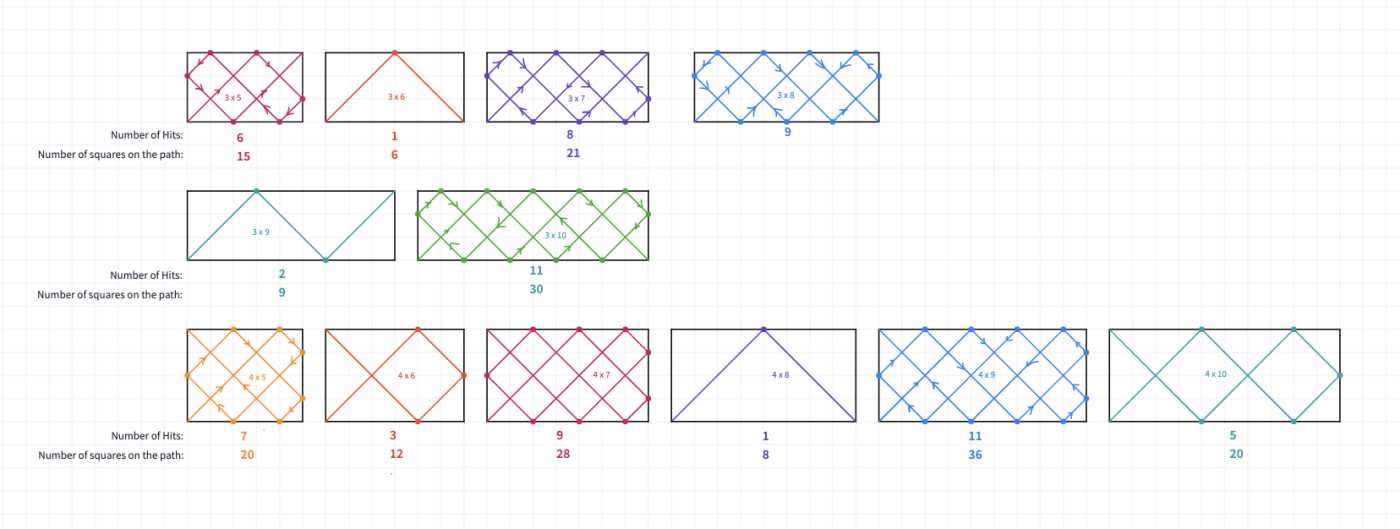The Pool Table Problem:
This popular activity helps students explore concepts like the least common multiple (LCM) and greatest common divisor (GCD) while having fun.Here’s how it works: Imagine a ball shot at a 45-degree angle from one corner of the table. By the law of reflection, it bounces off the rails at the same angle it hits them. The challenge is to figure out which pocket the ball will land in, and the answer depends on the dimensions of the table:
- If both the width and height are odd, the ball lands in the opposite corner.
- If one dimension is even, the ball ends up in a pocket directly across the table.
- For tables with both dimensions even, it’s trickier—the answer depends on simplifying the table’s dimensions to their smallest form.

The Pool Table Problem (Polypad)
For example, on a 3x5 table, the ball crosses 15 squares (the LCM of 3 and 5) and lands in the opposite corner. On a 4x6 table, it behaves like a 2x3 table because they share the same ratio. The problem even connects to geometry and the Pythagorean theorem, showing how the ball’s total path length can be calculated.
Engineering and Video Games:
Billiards is even used in physics and engineering! The way billiard balls collide and ricochet is almost identical to how particles interact in confined spaces. It’s like playing a game of pool with atoms (Mathematical Mysteries). The math behind billiards helps animators create those hyper-realistic scenes where balls bounce, roll, and collide in movies and games. Without this math, your favorite game or action scene wouldn’t look nearly as cool.“Pool is geometry, in its most challenging form. A science of precise angles and forces.” — The Twilight Zone: A Game of Pool
And then there’s the real magic of playing pool: visualization. It’s not just about hitting one ball; it’s about predicting how it’s going to set off a chain reaction across the table. Sometimes, you’ll need to bounce a ball off multiple rails or hit it at a bizarre angle to land the perfect shot(Wolfram MathWorld) It’s like geometry meets creativity, with a some of strategy to make it look effortless (Wolfram MathWorld). It's so popular that Disney even made a video about it!
Donald Duck Explains Billiards (Mathematical Mysteries)
Here’s the best part: by mastering Geometry and Angles, The Diamond System, and The Tangent Line, you’re not just learning math, you’re learning how to win. Pool is a game of skill, and these three concepts will help you win the game.